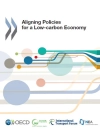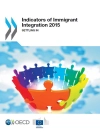This book presents an overview of the development of China-Europe express train in the broader context of BRI. It analyzes the benefits to the regions along the route from the safe, smooth and stable operation of the train in recent years, involving the strong impetus for building a new pattern of dual cycle development and driving the recovery of the economy in the post-pandemic era. Based on in-depth case studies of the operations in many regions, this book proposes measures in order to promote the high-quality development of China-Europe train: to improve infrastructure and enhance port capacity; to unify international standards and improve the efficiency of train customs clearance; to open up the European market and actively organize the return source of goods; to standardize government administrative intervention according to market orientation; to strengthen the construction of digital infrastructure with the focus on connectivity; to cultivate international logistics talentsand build a high-quality China-Europe express train talent team.
Spis treści
Achievements and challenges of the 'the Belt and Road’ initiative.- Strategic significance and effect analysis of China-Europe express train construction.- Development history, achievements and operation mode of China-Europe express train.- Problems and countermeasures in the development of China-Europe express train.- Case studies of key regions.
O autorze
Jiechang Xia is Vice President of the National Academy of Economic Strategy, Chinese Academy of Social Sciences, Professor at the Business School, University of the Chinese Academy of Social Sciences. He is also Chairman of the China Marketing Association His main research fields are service economy and industrial development. He has presided over several key research projects of the National Social Science Fund, general projects of the National Science Fund and research projects of national ministries and commissions. He has published many academic books, published many academic papers in China’s top peer-viewed magazines. His books and reports have won provincial and ministerial awards.
Yi Liu is Research Fellow of the National Academy of Economic Strategy, Chinese Academy of Social Sciences, Professor at School of Applied Economics, University of Chinese Academy of Social Sciences. Her main research fields are service economy and gig economy. She has presided over several key research projects sponsored by the National Social Science Fund, and research projects of national ministries and commissions. She has published multiple academic papers in important journals For several consecutive years, she has collaborated as the editor in chief of two series of books including 'Report on the Development of China’s Service Industry’ and the 'Frontiers of Service Economy Theory’.
Ziyan Xu is an Assistant Researcher at the Institute of Applied Economics, Shanghai Academy of Social Sciences. Her main research areas include service economics and tourism management. She has participated in multiple national social science fund projects and national high-end think tank projects, and has published over ten academic papers in important journals, as well as multiple academic works and national think tank reports. During her doctoral studies, she received two national scholarships from the Ministry of Education.
Hang Yuan is associate professor at the School of Economics, Capital University of Economics and Business. Her main research fields are Hang Yuan is associate professor at the School of Economics, Capital University of Economics and Business. Her main research fields are innovation economics and industrial economics. She has published multiple academic papers in important journals. She has presided over the Special Fund Support Project for Basic Research Business Expenses of Beijing Municipal University at Capital University of Economics and Business, and youth project funded by the National Natural Science Foundation of China.












